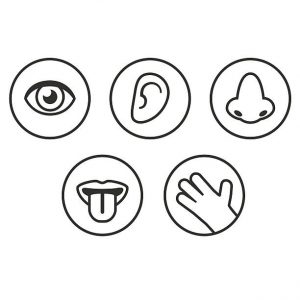What Having Anxiety Feels Like
Where Does Anxiety Come From | What Having Anxiety Feels Like — Talk Sober at YouTube.com
Today I want to talk to you about anxiety, where it comes from, and how to deal with it.
Sometimes we get anxiety, and it’s not fun to deal with. It’s not fun to live with. It can be totally disruptive to your life. So let’s talk about where anxiety comes from. Because I think if you understand this, it’s the first step in eliminating it from your life.
Factors that Cause Anxiety
There are several things that are at play here when we talk about anxiety. There are small anxiety things, like the stuff that you eat or drink. For example, sometimes if you have too much coffee, it can affect your anxiety. There’s also situational anxiety, where you might do something that is nerve-wracking or thought-provoking. You might be getting less sleep, or maybe you go off of your antidepressants.
These are all somewhat small things that affect anxiety, and you can usually change them in an easy way. You can get more sleep, or be in more comfortable situations, or figure out your medication schedule, or whatever it may be.

Then there are more complicated things about anxiety. The anxiety I deal with is from past trauma and abuse. There’s something deeper going on with people who have chronic, really debilitating anxiety, which is trauma, past abuse, and different things in their lives.
How the Brain Deals with Trauma
I want to show you how the brain stores memory of trauma. The brain is kind of like a computer.
With computers, you have what’s called a hard drive, and then there are little memory sticks called RAM, or random access memory.
When you’re using your computer, various different windows open up. You might be using Skype, or Facebook, or Microsoft Word, or any number of things. When these things are open, they’re going into your random access memory. The RAM in your computer makes it easy for these things to load.
The hard drive is slow and clunky, and it has a lot of stuff on it. So if you were to run all these just on your hard drive, without the RAM, everything would get slow. And then if you were to push the power button while everything is open, the computer freaks out and shuts down. Then all of these things get scatted all over the hard drive. There’s a fragment of Microsoft Word over here, there’s a fragment of this video over there and it’s all over your hard drive.
So now your hard drive has little bits and pieces and chunks of information all over the place, because it did a hard shutdown instead of closing everything out like you’re supposed to. This is known as a fragmented hard drive.

The reason I’m describing this like this is because this is the same thing that happens when someone is traumatized. In order to save the integrity of your brain and to deal with certain circumstances, your brain hits that reset button. It says, “I can’t deal with this. I’m going to fragment it.” And little pieces of this memory go everywhere.
So maybe it was one time you were traumatized, or maybe it was over and over again. But whatever’s happening, instead of a congruent fluid memory of an event, now there are pieces everywhere.
And every little piece is attached to something. So you might have a piece where you saw the facial expression of the person who abused you, and it’s attached to a memory because it’s all fragmented in your brain.
Your senses get data input from the outside world. So you might be walking through life, and you might see someone in a crowd of people. And even though you’re not consciously focusing on it, your brain picks up on the fact that one of those people looks like the person who attacked you.

Then all of a sudden you feel anxious, just like you’re in that trauma again. And it feels like you’re going crazy, because you don’t know what’s going on. And the problem is that when many people are traumatized, they have so many of these fragments around their brain that are affecting their daily life. Everywhere they find something, whether it’s in a crowd of people, or watching the news, or reading a book, or talking to someone. Whatever happens, the fragments are triggers, and they trigger these reactions.
You might have triggers that are obvious. Like for me, I used to get yelled at all the time when I was a kid. And now, when people yell, it’s a big trigger. But there are some less obvious ones, like certain things people say and things like that. So we have all these fragmented parts of our brain that are split up, and they’re causing triggers. We touch things, we smell things, we see things, we taste things, we hear things. And this is where the anxiety comes from.
Getting Past Anxiety
The key to getting past anxiety is understanding these fragments and starting to integrate them into normal memory. You need to defragment.
When your fragmented brain has all these pieces in it, it never puts them together and it never integrates them into your memory correctly. It doesn’t register that these events happened in the past, and you’re not there anymore. Your brain can’t separate those things.
Now you can realize this is happening. You can see that it’s just what your brain is doing. It’s not going to kill you. It’s not going to hurt you. It’s just doing what it needs to do. And now that you understand it, you can fight it in a whole new way.
For more information, visit www.TalkSober.com.
